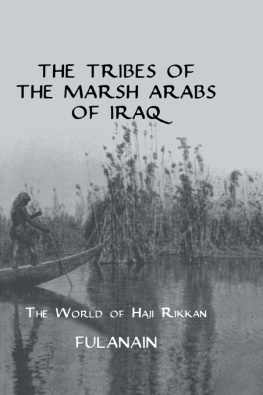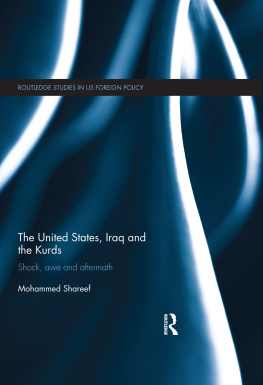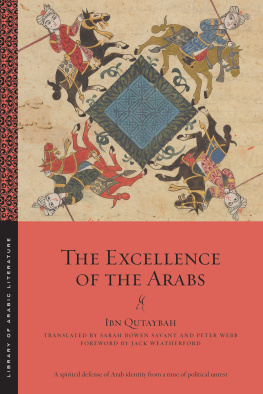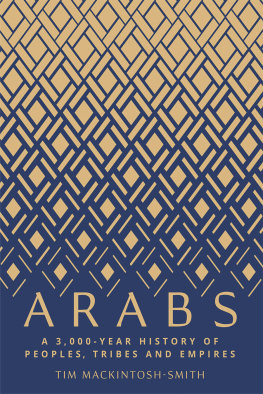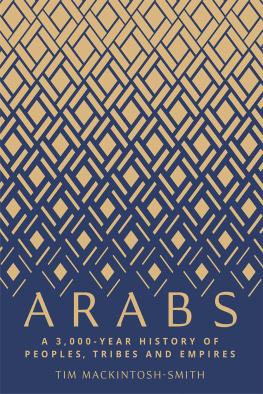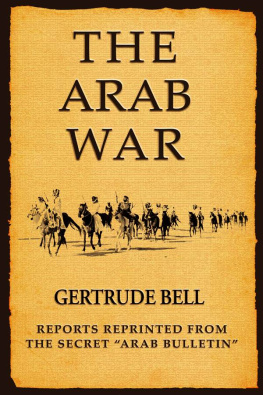THE TRIBES OF THE MARSH ARABS OF IRAQ
The Arab tribes of Iraq differ widely in custom but remain in all essentials of thought and conduct a distinctive and unique group. Their land embraces wide deserts, fertile fields and boundless swamps; its unique features shape the lives of its people. Taking the figure of Haji Rikkan as a central focus, the writer-traveller attempts to create a picture of Arab tribal life as a whole.
THE TRIBES OF THE MARSH ARABS OF IRAQ
THE WORLD OF HAJI RIKKAN
First published in 2004 by
Kegan Paul International
This edition first published in 2010 by
Routledge
2 Park Square, Milton Park, Abingdon, Oxon, OX14 4RN
Simultaneously published in the USA and Canada
by Routledge
270 Madison Avenue, New York, NY 10016
Routledge is an imprint of the Taylor & Francis Group, an informa business
Kegan Paul, 2004
Transferred to Digital Printing 2010
All rights reserved. No part of this book may be reprinted or reproduced or
utilised in any form or by any electronic, mechanical, or other means, now
known or hereafter invented, including photocopying and recording, or in
any information storage or retrieval system, without permission in writing
from the publishers.
British Library Cataloguing in Publication Data
A catalogue record for this book is available from the British Library
ISBN 10: 0-7103-0849-3 (hbk)
ISBN 13: 978-0-7103-0849-8 (hbk)
Publishers Note
The publisher has gone to great lengths to ensure the quality of this reprint
but points out that some imperfections in the original copies may be
apparent. The publisher has made every effort to contact original copyright
holders and would welcome correspondence from those they have been
unable to trace.
DEDICATION
NOTE
SOME of the material of this book has already appeared in Blackwoods Magazine, and to a lesser extent in the Cornhill Magazine and the Near East and India. To the editors of these periodicals acknowledgements are made. Where living persons are mentioned, fictitious names have been freely employed.
PREFACE
O WING to her untimely death, this book which was first undertaken at her suggestion appears without the fore-word promised by Miss Gertrude Lowthian Bell; but a grateful acknowledgement may still be made of her interest and encouragement.
The Arab tribes of Iraq, differing widely as they do in details of custom, speech, and manners, remain in the essentials of thought and conduct homogeneous; and the two great tribal confederations with which this book dealsthe Albu Mohammad and the Bani Lmmay justly claim to be representative of every aspect of tribal life. The country which they people, lying astride the Tigris from Kut-al-Amara in the north to Qurna in the south, embraces wide deserts for the shepherd and camel-breeding tribes, fertile fields for the tillers of the soil, boundless swamp for the marsh-dwellers; and into these three classes the tribespeople throughout Iraq may be roughly grouped. It is hoped that this book, though its central figure is drawn from the wildest and most primitive as it is the least known of these divisions, may present a not inaccurate picture of Arab tribal life as a whole, and represent in some measure the outlook and mentality and scale of values, so different from our own, of this inarticulate people whose fortunes, since the War first brought them into close contact with our civilisation, have been bound up with ours.
The reader will catch glimpses here and there of the difficulties which face the young administration of Iraq, the prejudices and conflicting tendencies with which she is gallantly and successfully attempting to deal. Contrasts between the present and the days of Turkish dominion, drawn spontaneously by the outspoken simplicity of the tribesmen, are enough to show how much has already been accomplished; how infinitely much remains to be done, the reader of these pages will appreciate.
Cordial thanks are due to the many Iraqi friends who, wittingly or unwittingly, have by story-telling and by patiently elucidating or confirming points of detail contributed to this book. To the kind and unsparing critic who commented upon its pages when in typescript a debt of affectionate gratitude is warmly acknowledged.
BAGHDAD, JUNE 1927.
CONTENTS
LIST OF ILLUSTRATIONS
The Pedlars Wares
Sketch Map of Bani Lm and Albu Mohammad territory
HAJI RIKKAN
MARSH ARAB
Chapter 1
THE PEDLAR
S TANDING in the prow of his uncles bitumen-coated birkash, Bahalul bent leisurely to his pole; in the stern sat his twin brother, Jahalul, guiding the clumsy craft with deft strokes of his paddle. They followed a narrow water-way which twisted and turned between walls of high green reeds. From a sky a shade less blue than the still marsh water, a brilliant sun shone down on the brown bodies of the brothers, naked but for a cloak of coarse wool twisted round the waist. It bronzed the rusty paraffin tins containing the tea, coffee, spices and flaked tobacco which comprised the stock in trade of Haji Rikkan, and warmed the bones of the old pedlar himself as he sat cross-legged in the belly of the boat. From my place facing him I watched the changeful monotony of the marsh, the wilderness of reeds and water in which I was privileged to accompany his wanderings. A cool breeze stirred the feathery, dun-coloured heads of the tall reeds, the water sighed and lapped among their roots, no louder sound than the ripple from Jahaluls paddle broke the intense quiet of the spring day.
Behind me Jahalul began to sing. Braying forcedly in the nose is Doughtys unkind description of the singing of the Arabs; but the plaintive air which, beginning in a burst of sound, rose and fell mournfully until it died away on the sub-dominant, a long-drawn note only terminated by the failure of the singers breath, was far from being to my ears a hideous desolation. Of the words I could distinguish few, until Haji Rikkan repeated the rhyming lines.
An exaggeration, he said, with a laugh that was half apologetic, half defensive, for the Arabs have a high regard for their poets and their poetry.
Jahalul sang to the woman he loved. The words were in the homely marsh dialect despised by purer-speaking Arabs, but they clothed a romantic idealism in strange contrast with the rough and primitive conditions of human life in the marshes.
As one the cannon strikes, stricken am I
Now that thy cheeks, like apple-blossom fair,
Or flower of pomegranate, are far away.
So fragile are thy slender shoulders, sweet,
That een the lightest silken veil would bruise
And chafe the skin of my most lovely one.
Not once, but many times the gentle, droning voice of Jahalul repeated the song, until it was cut short by an abrupt order from Haji Rikkan.
Bank in!
We had left behind the narrow channel with its flanking ramparts of reeds, and had come out into a clearing of open water, above the surface of which barely rose the flat shapes of two low islands. To the nearest of these Jahalul turned the boat, and as the high curved prow ran aground the elder twin shipped his pole, leapt lightly out, and splashing back through the water joined his brother in the stern. The two began to chat together in low tones, as though this banking in on a lonely and deserted islet were an occurrence to which they were accustomed.

